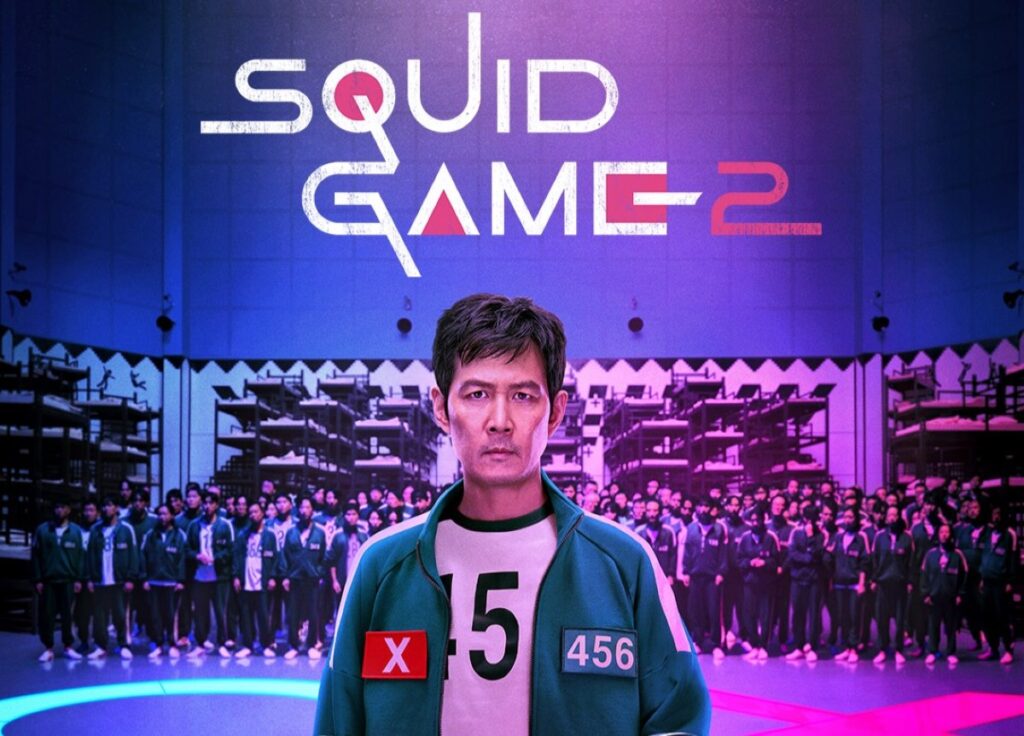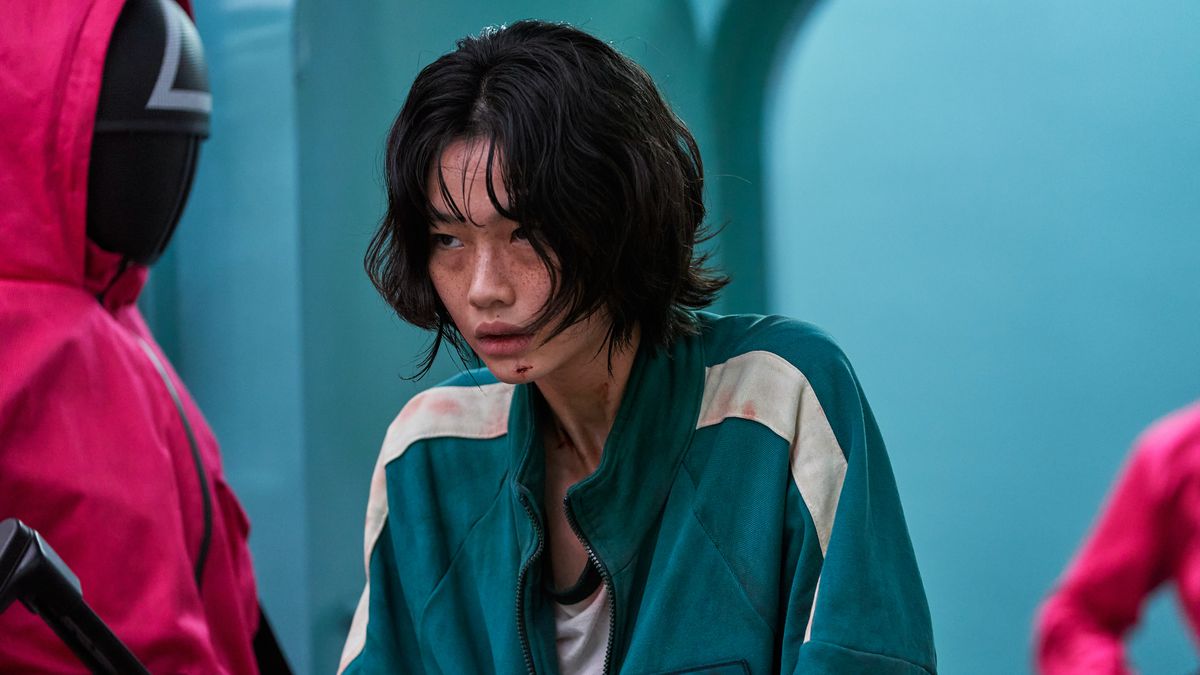
The wait is finally over. Earlier today, Netflix dropped the highly anticipated Squid Game Season 2, reigniting the global frenzy around this South Korean sensation. The first season broke records, becoming the most-watched Netflix series of all time, and it’s easy to see why. With its unique premise, gripping performances, and thought-provoking themes, Squid Game has firmly established itself as a cultural phenomenon. But as the series returns for a second round, it’s worth asking: is Squid Game too overhyped, or does it truly deserve its spot in the global spotlight?
Here’s a deep dive into why Squid Game captured the world’s attention and became a symbol of modern entertainment—and whether it lives up to its colossal reputation.
A Realistic Narrative with Powerful Performances
At its core, Squid Game thrives on its brutally realistic depiction of desperation and survival. Set against a backdrop of economic disparity and social injustice, the series’ narrative resonates deeply with audiences. The story follows Seong Gi-hun (Lee Jung-jae), a down-on-his-luck chauffeur struggling to make ends meet, and Cho Sang-woo (Park Hae-soo), a once-promising businessman now drowning in debt. These characters, along with hundreds of others, risk their lives in a deadly series of children’s games for the chance to win an enormous cash prize.
The performances of the cast bring this gripping tale to life. Lee Jung-jae delivers a nuanced portrayal of Gi-hun, whose transformation from a hapless gambler to a morally conflicted survivor tugs at viewers’ heartstrings. Meanwhile, Jung Ho-yeon, who plays Kang Sae-byeok, a North Korean defector seeking a better life for her family, became an instant breakout star, her layered performance capturing both vulnerability and resilience. These performances anchor the series, making its outlandish premise feel chillingly plausible.
Relatable and Flawed Characters

One of Squid Game’s biggest strengths is its roster of deeply relatable and flawed characters. From the manipulative yet desperate Sang-woo to the selfless and stoic Sae-byeok, every participant in the deadly games has their own compelling backstory and motivations. These characters are not heroes or villains but ordinary people pushed to extraordinary extremes. This relatability allows viewers to see themselves in the contestants. Who wouldn’t be tempted to risk it all for a shot at escaping crushing debt or providing a better life for their loved ones? This moral ambiguity is a key reason why Squid Game resonates across cultures and age groups.
Survival Instinct at Its Most Raw

The survival genre has always fascinated audiences, but Squid Game takes it to a new level by stripping humanity down to its rawest instincts. The games force participants to make impossible choices, often pitting morality against survival. This primal struggle resonates deeply with viewers, tapping into universal fears and desires. In today’s world, where uncertainty and inequality are rampant, Squid Game’s portrayal of survival feels especially relevant. It’s not just about winning the game but about enduring the psychological and emotional toll it takes. This brutal honesty sets the series apart from other survival dramas.
Gore and Dark Twists: The New Generation’s Obsession

For younger audiences raised on Black Mirror and The Walking Dead, Squid Game’s combination of shocking violence and dark twists is perfectly calibrated. The series doesn’t shy away from graphic depictions of death and betrayal, which keeps viewers on edge and craving more. This unflinching approach caters to a generation that values bold storytelling and isn’t afraid of a little blood. From the heartbreaking betrayal in the marbles game to the chaotic free-for-all in the glass bridge challenge, Squid Game constantly subverts expectations, ensuring that viewers never feel safe. It’s this unpredictability that keeps audiences hooked.
Costumes, Symbols, and Color Palette: A Marketing Dream

The visual elements of Squid Game are nothing short of iconic. The vibrant pink jumpsuits of the guards, the geometric symbols on their masks, and the eerie, oversized doll from “Red Light, Green Light” have become instantly recognizable. These elements have been widely replicated in cosplay, memes, and merchandise, turning the series into a cultural touchstone. The show’s distinct color palette—with its juxtaposition of playful pastels and grim settings—creates a surreal yet haunting aesthetic. This visual identity plays a significant role in its widespread appeal, making Squid Game not just a show but a brand.
The Rise of Korean Cinema and Global Accessibility

Squid Game arrived at a time when Korean cinema and television were enjoying unprecedented global recognition. The success of films like Parasite and shows like Kingdom paved the way for Korean storytelling to reach international audiences. Netflix’s investment in Korean content further amplified this phenomenon, ensuring that Squid Game was accessible in multiple languages and dubbed or subtitled for global audiences. This accessibility made it easier for the series to transcend cultural barriers and become a worldwide hit.
Targeting the Perfect Audience

By focusing on themes like financial struggles, societal inequality, and the pressures of survival, Squid Game struck a chord with its target audience: youth and mid-aged adults. These demographics, who are often navigating their own economic challenges and existential questions, found the series both relatable and cathartic. Moreover, the show’s serialized structure and cliffhangers made it binge-worthy, a crucial factor for engaging younger viewers who consume content voraciously.
At its heart, Squid Game is more than just a show about survival; it’s a mirror reflecting the struggles of modern society. Its combination of relatable characters, striking visuals, and thought-provoking themes has made it a cultural phenomenon that resonates far beyond its South Korean origins. Sometimes, all the world needs is an underdog survival story that offers a glimmer of hope in an otherwise hopeless world—and, of course, a generous dose of entertainment. Whether Squid Game is overhyped or not, its impact is undeniable, and as season 2 unfolds, it’s safe to say the frenzy is far from over.






